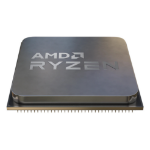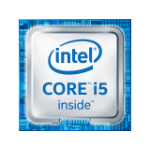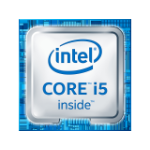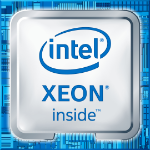We use cookies to make your experience better.
To comply with the new e-Privacy directive, you agree to the privacy policy and our use of cookies.
AMD
AMD Ryzen 5 9600 processor 3.8 GHz 32 MB L3
SKU
100-000000718
In Stock
Socket AM5, 6 cores, 12 threads, 3.8 GHz base clock, 5.2 GHz boost clock, 32 MB L3 cache, 65 W TDP

Next Day (UK) Delivery offered on stock items
| Processor | |
|---|---|
| Processor generation | AMD Ryzen 9000 Series |
| Processor base frequency | 3.8 GHz |
| Processor manufacturer | AMD |
| Cooler included | No |
| Thermal Design Power (TDP) | 65 W |
| Processor cache | 32 MB |
| Processor model | 9600 |
| Processor threads | 12 |
| Processor operating modes | 64-bit |
| Processor boost frequency | 5.2 GHz |
| Processor lithography | 4 nm |
| Processor family | AMD Ryzen™ 5 |
| Processor cores | 6 |
| Box | No |
| Processor socket | Socket AM5 |
| Processor cache type | L3 |
| Memory | |
| Maximum internal memory supported by processor | 192 GB |
| Memory types supported by processor | DDR5-SDRAM |
| Memory clock speeds supported by processor | 3600,5600 MHz |
| Memory channels | Dual-channel |
| ECC | Yes |
| Graphics | |
| Discrete graphics card | No |
| On-board graphics card model | AMD Radeon Graphics |
| On-board graphics card | Yes |
| On-board graphics card base frequency | 2200 MHz |
| Discrete graphics card model | Not available |
| Power | |
|---|---|
| Thermal Design Power (TDP) | 65 W |
| Technical details | |
| PCI Express slots version | 5.0 |
| Compatible operating systems | Windows 10/11 x64, RHEL x86 64-bit, Ubuntu x86 64-bit |
| Thermal Design Power (TDP) | 65 W |
| Market segment | Desktop |
| Processor cache type | L3 |
| Features | |
| Maximum number of PCI Express lanes | 28 |
| Thermal Design Power (TDP) | 65 W |
| PCI Express slots version | 5.0 |
| Compatible operating systems | Windows 10/11 x64, RHEL x86 64-bit, Ubuntu x86 64-bit |
| Market segment | Desktop |
| I/O configuration | |
| USB version | 2.0/3.2 Gen 2 (3.1 Gen 2) |
| USB ports quantity | 5 |
You may also be interested in
| Product |
 AMD Ryzen 5 9600 processor 3.8 GHz 32...
Login for pricing
AMD Ryzen 5 9600 processor 3.8 GHz 32...
Login for pricing
|

Hot Product
Intel Core i5-9500 processor 3 GHz 9 M...
Login for pricing
|
 Intel Core i5-9500TE processor 2.2 GHz...
Login for pricing
Intel Core i5-9500TE processor 2.2 GHz...
Login for pricing
|

Popular
Intel Xeon W-2223 processor 3.6 GHz 8....
Login for pricing
|

Bestseller
AMD Ryzen 7 5800X processor 3.8 GHz 32...
Login for pricing
|

Recommended
AMD Ryzen 5 5600G processor 3.9 GHz 16...
Login for pricing
|
|---|---|---|---|---|---|---|
| SKU |
100-000000718
|
CM8068403362610
|
CM8068404404726
|
CD8069504394701
|
100-100000063WOF
|
100-100000252BOX
|
| Manufacturer |
AMD
|
Intel
|
Intel
|
Intel
|
AMD
|
AMD
|
| Processor lithography |
up to 22nm
|
up to 22nm
|
up to 22nm
|
up to 22nm
|
up to 22nm
|
up to 22nm
|
| Processor family |
AMD Ryzen 5
|
Intel Core i5
|
Intel Core i5
|
Intel Xeon W
|
AMD Ryzen 7
|
AMD Ryzen 5
|
| Processor socket |
Socket AM5
|
LGA 1151 (Socket H4)
|
LGA 1151 (Socket H4)
|
LGA 2066 (Socket R4)
|
Socket AM4
|
Socket AM4
|
| Processor cores |
6
|
6
|
6
|
4
|
8
|
6
|
| On-board graphics card |
Y
|
Y
|
Y
|
N
|
N
|
Y
|
| Discrete graphics card |
N
|
N
|
N
|
N
|
N
|
N
|
| Cooler included |
N
|
N
|
N
|
N
|
N
|
Y
|
| Package type |
Tray
|
Tray
|
Tray
|
Tray
|
Box
|
Box
|

